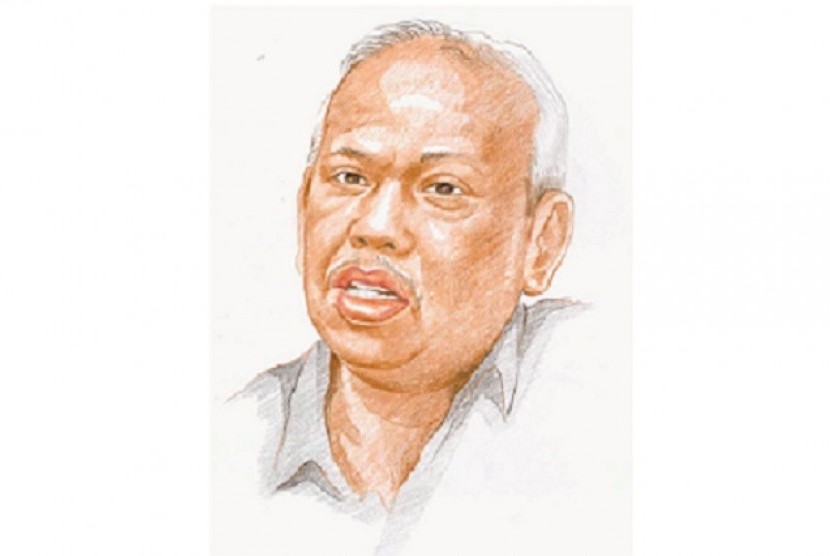REPUBLIKA.CO.ID, By: Azyumardi Azra
Deterioration of public civility in Indonesian society after the New Order was one of the main problems facing this nation. Everywhere, people could see the violation of public civility, ranging from motorists whom were not concerned with the provision of traffic, throwing garbage on the highway, urinating in the street, did not want an orderly queue until the theft of public assets better known as corruption.
Such actions made the perpetrators as -- uncivilized – or people whom have no politeness. In fact, it mentioned that the Indonesian people from various tribes always claimed to be religious, noble, virtuous, and so on.
Looking at the phenomenon of the deterioration of public civility, the author of this resonance was felt lucky when understand that civility be one of the key themes was conceived and practiced by a reformer figure of Islamic Indonesia from Minangkabau, Abdullah Ahmad (1878-1933). A discussion of this subject became an important discourse in the National Seminar on Commemoration of 100 Years of Adabiah Institution (1915-2015) – the education institution established by Abdullah Ahmad.
This figure was one of Islamic reformers generation known as the 'the Youth' -- modernism locomotive and Islam reformism in Southeast Asia whom came from West Sumatra. They include, among others, Haji Abdul Karim Amrullah (1979-1945 or Haji Rasul, Buya Hamka’s father), Muhammad Tahir Jalaluddin al-Minangkabawi al-Azhari (1869-1956), and Muhammad Jamil Jambek (1862-1947).
Although Abdullah Ahmad was a prominent figure because the attributes attached to himself (on his own right) –it must not always be in the context of the Youth -- not or has not been complete and in-depth study on this figure. During this time he only got a briefly discussion in the study reformism or Islamic modernism of the Youth by historians like Deliar Noer or Taufik Abdullah.
It included in the core network of scholars in the late 19th and early 20th century which based in Makkah on the figure of main teacher, Sheikh Ahmad Khatib al-Minangkabawi (1860-1916), Abdullah Ahmad chose to adopt the idea and praxis of modernism or Islamic reformism.
Indeed, among the disciples of Ahmad Khatib there were taking the path of Islamic reformism, such as Abdullah Ahmad and Ahmad Dahlan (1868-1923, founder of Muhammadiyah on 1912). On the other hand, some were embracing Islamic traditionalism, such as Hasyim Asy'ari (1871-1947, founder of NU 1926), and Sulaiman al-Rasuli (1871-1970, founder of Tarbiyah Islamiyah Unity / Perti 1928).
Related to scholar’s network based in Mecca, Abdullah Ahmad has deep religious knowledge. Being in Makkah (1895-1899) on the last decade of the 19th century, the idea of modernism or Islamic reformism introduced by Jamaluddin al-Afghani (1838-1896), Muhammad Abduh (1849-1905), and Muhammad Rasyid Rida (1865-1935), were very interesting for Abdulah Ahmad.
Therefore, the world view and praxis of Islam of Abdullah Ahmad was clearly typical of modernism-reformism. He was strong oriented on puritanical Islam, did not accept Islam compromises with local culture and at the same time reject heresy and dogmatic.
Religious understanding was included in the Salafi stream. But in contrast with the flow and certain Salafi groups were aggressive and easy to violence for the sake of 'Islamic puritanism', Abdullah Ahmad was taking the approach with the peace way. In various writings, he stressed the importance of peace and brotherhood among nations and humanity as a whole.
In that context, Abdullah Ahmad looked at the development of civility as the best and most strategic way. To that end, in 1906 he founded the 'Jami'ah Adabiyah'. In the author's understanding of this resonance, 'Jami'ah Adabiyah' could be referred to as the ‘Civility community’.
The term 'Adabiah' refers not only to the ‘Civility community’, but also of civilization and ' courtesy’ (virtuous moral conduct). The third of these --civility, civilization, and courtesy-- produced its own genre of literature in Islamic thought literatures.
Based on that understanding, the adoption of the term ‘Adabiah’ by Abdullah Ahmad was beyond his time. The third term that contained a very important concept and praxis were important to remain relevant in the present and future.
It is no doubt the education is a vehicle and most strategic locus for building civility, civilization, and courtesy. It could be easily understood that later in 1909, Abdullah Ahmad founded the [Foundation] Adabiah Institution. Later in 1915 he founded the 'Madrasah Adabiyah' that despite the term 'madrasah' was based on the Dutch school system.
During its development, the institution evolved into a school with Dutch curriculum. But Abdullah Ahmad was introducing innovations 'met de Qur'an' –school with Dutch style, but fitted with 'religious instruction'. It was a precedent for Islamic schools which continued to find momentum until now.
Abdullah Ahmad with the idea and praxis of ‘civility community’, civilization', and courtesy were still relevant today and in the future needs to be revitalized. The challenge of deterioration of public civility required us to explore the thoughts and praxis which born of thinkers –cum—the activist Abdullah Ahmad and other Indonesian thinker.


